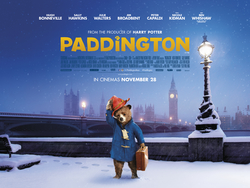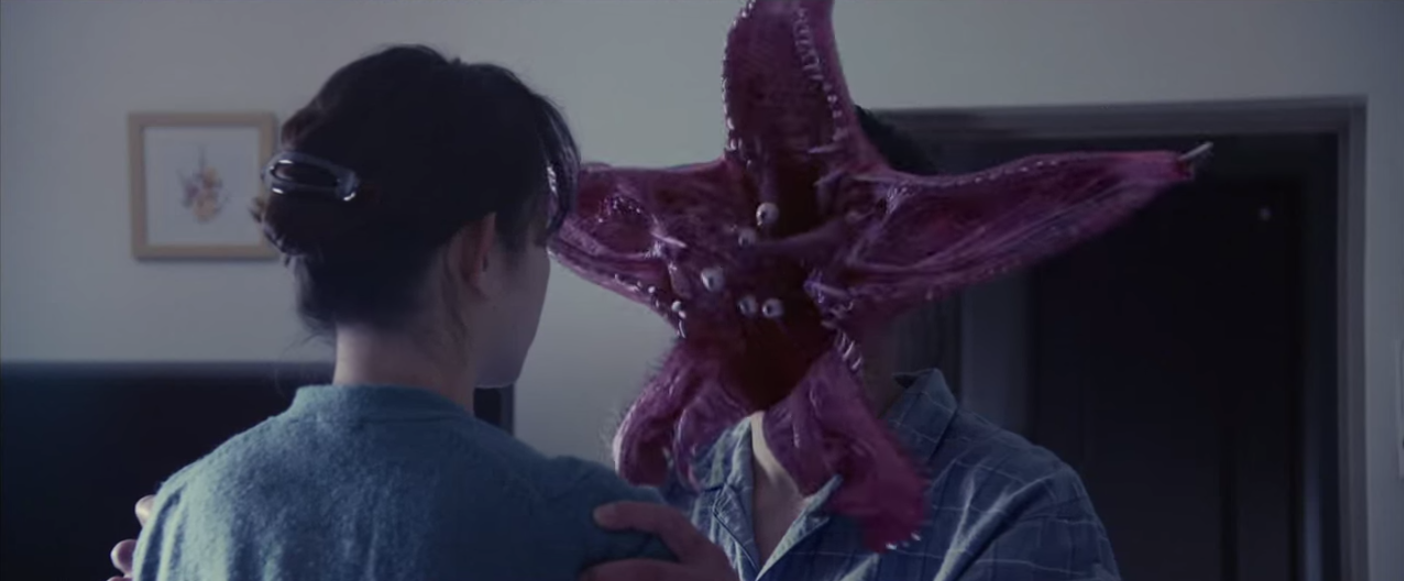What's happening, everybody? This is the Internet Warrior speaking.
Thirty years ago, Andrew Lloyd Webber gathered an amazing group of singers and actors in London to create a musical play that will last throughout the ages in the minds of people and theater-goers everywhere. It is called
the Phantom of the Opera, based on the French novel of the same name published by Gaston Leroux in 1909.
Twenty-five years later, the musical continued to be the most successful musical play of all time, next to
Les Miserables, and so far, it is shown in various theaters across the world, including the New York version of it which is still the longest-running and most successful Broadway musical in history. To celebrate and honor the long success, in 2011, a new London cast is hired to perform the same old
Phantom of the Opera musical with the same charm and same enthusiasm from Webber himself that made us love the whole thing since the original performance in 1986.
This is
The Phantom of the Opera at the Royal Albert Hall.
To mark the silver anniversary of such a powerful play, Weber and producer Cameron Mackintosh decided to commemorate the momentous occasion by sending in the Royal Albert theatrical team to perform
the Phantom of the Opera on October 2, 2011. The team promised to make this version of the play the most powerful that anyone could ever see. The musical had three performances. The third of which was screened live all over the globe, through television or cinemas. Eventually, it was adapted into a movie with footages of three different performances meshed in together for the price of one.
 |
| The Royal Albert Hall |
Also, to celebrate the 30th anniversary since the creation of such an ambitious project, I feel that I should give the 25th anniversary special the honor of delving in through the whole thing for today's Random Movie Review. This is
the Phantom of the Opera.
The play starts at the
Prologue, where on the stage of
Opéra Populaire in 1905, an auction of old theatrical props is underway. Lot 665, purchased by the elderly Raoul, Vicomte de Chagny, is a papier-mâché music box in the shape of a monkey. He eyes it sadly, noting that its details appear "exactly as she said". Lot 666 is a shattered chandelier that, the auctioneer explains, has a connection to “the strange affair of the Phantom of the Opera, a mystery never fully explained”. As the chandelier is uncovered, its lamps flicker to life and it magically rises over the audience to its original position in the rafters. As it ascends, the years roll back and the Opéra returns to its 1880's grandeur.
Thus,
Act I begins all the way back to 1881. As Carlotta, the opera's resident
soprano prima donna, rehearses for that evening's performance in an opera play called
Hannibal, a backdrop collapses without warning. The anxious cast members whisper, “The Phantom! He's here!” The opera's new owners, Firmin and André, try to downplay the incident, but Carlotta refuses to continue and storms offstage. Madame Giry, the opera's ballet mistress, tells Firmin and André that Christine Daaé, a Swedish chorus girl and orphaned daughter of a prominent violinist, has been "well taught" and could sing Carlotta's role. With cancellation of the performance their only alternative, the owners reluctantly audition Christine, and to their surprise she is equal to the challenge.
Backstage after her triumphant debut, Christine confesses to her best friend Meg, Madame Giry's daughter, that she knows her mysterious teacher only as an invisible "
Angel of Music". The opera's new patron, Raoul, the Vicomte de Chagny, finds Christine, his old childhood playmate, in her dressing room. (
"Little Lotte") Christine reminisces with Raoul about the "Angel of Music" stories that her late father used to tell them and confides that the Angel has visited her and taught her to sing. Raoul laughs at her "fantasies" and invites her to dinner.
 |
| The Mirror |
After Raoul leaves, a jealous Phantom appears in Christine's mirror in the guise of the Angel of Music. (
"The Mirror/Angel of Music (Reprise)") Christine begs him to reveal himself and the Phantom obliges, then guides her into a ghostly underground realm. (
"The Phantom of the Opera")
 |
| Ramin Karimloo as the Phantom and Sierra Boggess as Christine, singing The Phantom of the Opera |
They cross a subterranean lake to his secret lair beneath the opéra house. The Phantom explains that he has chosen Christine to sing his music and enchants her with his own sublime voice. (
"The Music of the Night") Christine sees a mannequin resembling herself in a wedding dress, and when the mannequin suddenly moves, she faints. The Phantom picks her up and places her gently on a bed.
 |
| The Music of the Night |
As the Phantom composes music at his organ, Christine awakens to the sound of the monkey music box. (
"I Remember…") She slips behind the Phantom, lifts his mask, and beholds his real face. The Phantom rails at her curiosity, then ruefully expresses his longing to look normal—and to be loved by her. (
"Stranger Than You Dreamt It")
 |
| Stranger Than You Dreamt It |
Meanwhile, inside the opéra house, Joseph Buquet, the opera's chief stagehand—who, like Madame Giry, inexplicably knows much about the Phantom—regales everyone with tales of the "Opera Ghost" and his terrible Punjab lasso. (
"Magical Lasso") Madame Giry warns Buquet to exercise restraint. In the managers' office, Madame Giry delivers a note from the Phantom: He demands that Christine replace Carlotta in the new opera,
Il Muto, or there will be a terrible disaster "beyond imagination". (
"Notes…")
Firmin and André assure the enraged Carlotta that she will remain the star, (
"Prima Donna") but during her performance, (
"Poor Fool, He Makes Me Laugh") the Phantom reduces her voice to a frog-like croak. A ballet interlude begins, to keep the audience entertained—but a series of menacing shadows can be seen on the backdrop. Suddenly the corpse of Buquet, hanging from the Punjab lasso, drops from the rafters. Firmin and André plead for calm as the Phantom's diabolical laughter is heard.
In the ensuing mêlée, Christine escapes with Raoul to the roof, where she tells him about her subterranean rendezvous with the Phantom. Raoul is skeptical, (
"Why Have You Brought Me Here?/Raoul, I've Been There") but swears to love and to protect her always. (
"All I Ask of You") The Phantom, who has overheard their conversation, is heartbroken.
 |
| All I Ask of You |
As he angrily vows revenge against Raoul, (
"All I Ask of You (Reprise)") the Opéra's mighty chandelier crashes to the stage as the curtain falls, ending the first Act.
Act II begins six months later in the midst of the gala masquerade ball, where the Phantom, costumed as the Red Death, makes his first appearance since the chandelier disaster. (
"Masquerade/Why So Silent?") He announces to the stunned guests that he has written an opera entitled
Don Juan Triumphant.
 |
| Christine and Hadley Fraser as Raoul in Masquerade |
 |
| Why So Silent? |
He demands that it be produced immediately, with Christine (who is now engaged to Raoul) in the lead role, and warns of dire consequences if it is not. He seizes Christine's engagement ring and vanishes in a flash of fire and smoke. Raoul demands that Madame Giry tell him about the Phantom. She reluctantly replies that he is a brilliant musician and magician born with a terrifyingly deformed face, who escaped from captivity in a traveling freak show and disappeared.
During rehearsals, Raoul hatches a plan to use
Don Juan Triumphant as a trap to capture the Phantom, knowing the Phantom will be sure to attend its premiere. (
"Notes/Twisted Every Way") Christine, torn between her love for Raoul and her gratitude for the Phantom's teaching, visits her father's grave, longing for his guidance. (
"Wishing You Were Somehow Here Again") The Phantom appears, again under the guise of the Angel of Music. (
"Wandering Child") Christine nearly falls under his spell, but Raoul arrives to rescue her. The Phantom taunts Raoul, launching fiery missiles at him, (
"Bravo Monsieur") until Christine begs Raoul to leave with her. Furious, the Phantom sets fire to the cemetery.
Don Juan Triumphant opens with Christine and Ubaldo Piangi, the opera's principal tenor, singing the lead roles. (
"Don Juan") During their duet, Christine realizes that she is singing not with Piangi, but with the Phantom himself. (
"The Point of No Return")
When he expresses his love for her and gives her his ring, Christine rips off his mask, exposing his deformed face to the shocked audience. As Piangi is found strangled to death backstage, the Phantom seizes Christine and flees the theater. An angry mob led by Meg searches the theatre for the Phantom, while Madame Giry directs Raoul to the Phantom's subterranean lair, and warns him to beware his Punjab lasso.
In the lair Christine is forced to don the doll's wedding dress. (
"Down Once More/Track Down This Murderer") Raoul arrives, but the Phantom captures him with his lasso. He tells Christine that he will free Raoul if she agrees to stay with him forever; if she refuses, Raoul will die. (
"Final Lair")
 |
| An infuriated Phantom challenges Raoul in the Final Lair. |
Christine tells the Phantom that it is his soul that is deformed, not his face, and kisses him. The Phantom, having experienced kindness and compassion for the first time, sets them both free. Christine returns the Phantom's ring to him, and he tells her that he loves her. She cries, forces herself to turn away, and exits with Raoul.
 |
| Christine finally leaves the Phantom. |
The Phantom, weeping, huddles on his throne and covers himself with his cape. The mob storms the lair and Meg pulls away the cape—but the Phantom has vanished with only his mask remaining. And thus ends the story of music and mystery all under the power of love.
Finally, at the very end of the performance, Andrew Lloyd Webber delivered a speech to the audience before bringing out the Royal Albert Hall creative team, the original creative team, as well as the original leads from both the London and Broadway productions, Michael Crawford (the original Phantom of the Opera) and Sarah Brightman (the original Christine Daaé). Brightman sang
"The Phantom of the Opera" with five Phantoms: Colm Wilkinson from the Canadian production, Anthony Warlow from the Australian production, Peter Jöback, who played the role on both the West End and Broadway, John Owen-Jones from the London and UK Tour productions, and Ramin Karimloo. The performance concluded when the five Phantoms sang
"The Music of the Night", along with the entire cast and creative teams. A more-than-worthy sequence to conclude the 25th anniversary that everybody is anticipating.
And that was the Phantom of the Opera's 25th Anniversary in the Royal Albert Hall. As usual, the story, the moody theme, the music and the dark atmosphere impacts both the whole audience and cast because of its uniqueness from other powerful theater plays. The love triangle of the Phantom, Christine and Raoul, the mystery of the Opera, the darkness of the music and the gloomy atmosphere of death and magic are all portrayed with such power that made us love the Phantom of the Opera since its original Weber-Mackintosh performance in 1986 and even up to this day. And that is why the musical is still the greatest of all time.
Which of course brings me to today's question:
What is your favorite scene in the Phantom of the Opera?
Leave your interesting and creative responses in the comment section below.
But thanks for reading today's Random Movie Review. I am the Internet Warrior, saying that I approve this message



























